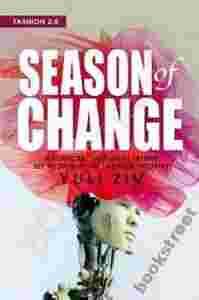|
In her controversial second book in the Fashion 2.0
series, Season of Change, serial entrepreneur Yuli Ziv
analyzes major technology trends and forecasts their
effect on the fashion industry. She questions why
everyday objects such as clothes used by the entire
human race see so little innovation. Her book, with a
foreword by a visionary venture capitalist Lawrence
Lenihan of FirstMark Capital, is a wakeup call to the
outdated fashion industry.
A must-read for everyone
involved in the business of fashion from designers to
company CEOs and marketers, Ziv’s bold predictions —
sure to incite debate — address the future of the
industry in multiple areas including consumer, branding,
retail, product and lifestyle. Her goal is to provoke
thought and foster innovation by challenging the status
quos—from seasonal collections to pricing models;
production and manufacturing; traditional advertising;
trend forecasting; fashion week and more. She also
offers up ideas for fellow entrepreneurs seeking to make
their mark on the industry.
Ziv highlights trends
that brands need to consider in developing a successful
strategy to navigate this new environment of constant
change including: the rise of group consciousness and
crowd sourcing; the shift from search to discovery; the
power of suggestion; the monetization of influence;
personal style as a commodity; personalization;
interaction and engagement; efficiencies; and data as
the new retail currency. She takes a critical look at
luxury brands, stating that innovation is slowly
replacing heritage as the new attribute of luxury for
the future.
Inspired by innovation leaders like Ray
Kurzweil, Ziv applies his Singularity theory to fashion
by viewing it as part of the bigger change we are
experiencing. Ziv proposes taking a page from the
consumer electronics industry in her overview of new
technologies — from smart fabrics to interactive retail,
wearable tech and social tools — and challenges industry
leaders to re-examine the role fashion plays in our
overall way of life. According to Ziv, optimizing our
lifestyle is the new slogan of our decade. Streamlining
the bureaucratic, inefficient processes that currently
fill our life will allow all of us as a society to focus
on things that matter. We will waste fewer resources and
produce more meaningful objects. The book is aimed to
inspire the radical change in thinking, which is needed
to foster that.
|
|

